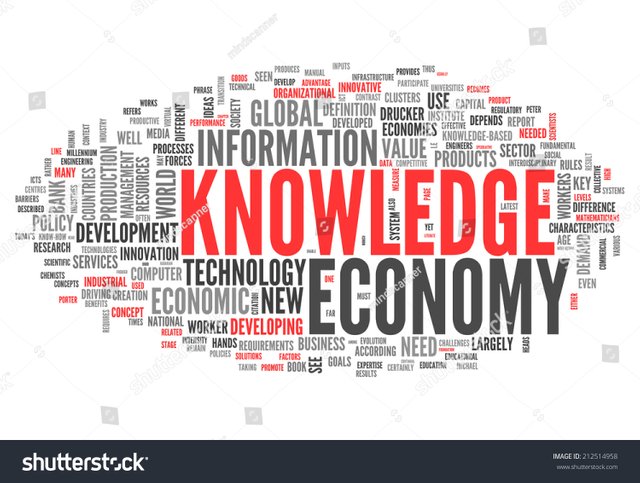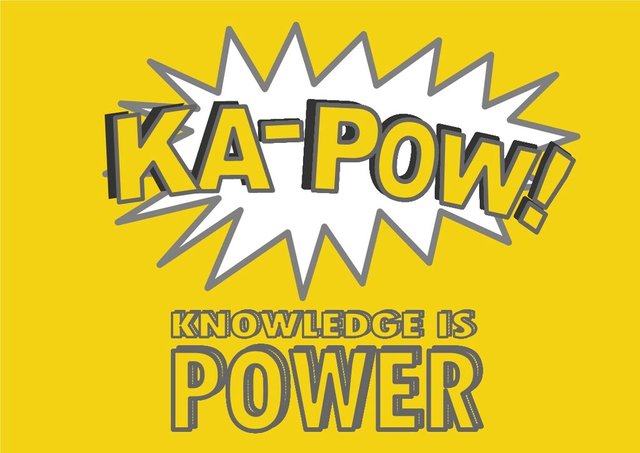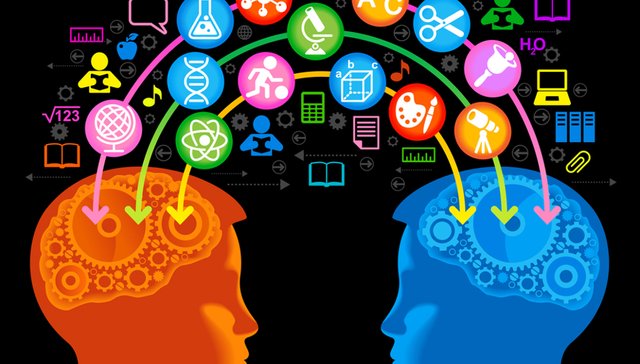According to the United Nations: "Knowledge economy is a major economy based on science and knowledge, the core of the knowledge economy is high technology".

Source
The power of the knowledge economy is based on three types of technology, which are considered as three typical outcomes:

Source
- Biotechnology, including genetic engineering. By human biotechnology, the basic elements of the organic world can be transformed, including human life itself.
- Nanotechnology, based on the results of the reorganization of the atomic structure, through which man can influence both the inorganic world.
- Informatics, Information Technology (ICT) with supercomputers. Information technology is the typical intellectual technology. Human beings, thanks to that, organize, manage and carry out sophisticated and sophisticated production processes that people can not do, even without thinking of their past. Thanks to computer technology, people can enrich many relationships in social life, between people and people.
The knowledge economy has the following ten main characteristics:

Source - The transformation of the economic structure, the idea of innovation and the development of new technologies have become the key to creating new jobs and improving the quality of life. High economic growth rate.
- Applying information technology is widely carried out in all fields, multimedia information network covers, connecting most organizations and families. Information becomes an important resource. Every aspect of social activities has the impact of information technology.
- Technological production becomes the most important, most advanced, most representative type of future production. All enterprises produce technology, and at the same time there are enterprises specializing in technology production, can call it knowledge enterprises. Where production science is institutionalized, there is no distinction between laboratories and factories, in which they are both researchers and snarers, intellectual workers.
- Social learning, education development, investment in science education accounts for a high proportion. Intangible investment (human, education, science ...) is higher than tangible investment (physical facilities). Human development becomes a central task. The education system must ensure that everyone can learn at any time. Bringing important information, ensuring lifelong learning.
- Knowledge becomes the most valuable asset in the knowledge economy. Knowledge is the leading resource for growth. Knowledge and information are increased when used, not lost when used (other funds are lost when used).
- Creativity is the soul of innovation, creativity is endless. Frequent innovation is the driving force behind development. Fast innovation technology, shortened life cycle, sometimes only a few years, even months. Enterprises that want to stay and develop must always innovate technology and products.
- Democratization, information society promotes democratization. Everyone can easily access the information they need. This leads to the democratization of social activities and organizations. Every citizen can know timely information about the policies of the State, organizations and opinions as soon as they are inappropriate.
- The businesses will be cooperate and compete for development. In the same field, when a successful company grows up, other companies must find a way to merge or redirect operations.
- Globalized economy. Global markets and products, a snar produced from anywhere, can quickly be found everywhere in the world, or the product is largely made in many parts of the world. The high performance of the virtual company working remotely.
- Cultural challenge. In the knowledge-information society, culture, conditions of rapid development and culture are the driving forces for socio-economic development.